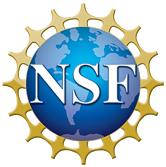 The following is a letter to the community from National Science Foundation (NSF) Acting Assistant Director for the Directorate for Computer & Information Science & Engineering (CISE), Suzi Iacono.
The following is a letter to the community from National Science Foundation (NSF) Acting Assistant Director for the Directorate for Computer & Information Science & Engineering (CISE), Suzi Iacono.
Dear CISE Colleagues,As we mark the end of Computer Science Education Week for 2014, it is my pleasure to inform you that the National Science Foundation (NSF) engaged in a number of important activities this past week, seeking to inspire and build a globally competitive 21st century workforce.
One of our most important goals is to ensure that all students in schools across the country have access to the most advanced learning environments and can take advantage of new approaches to computational and data-intensive science and engineering. Yet access to computer science at the K-12 levels remains extremely limited. A national movement – catalyzed by NSF efforts and advanced through strategic partnerships – has been working to change that by supporting the development of rigorous, engaging computer science high school curricula and by helping to create scalable models of professional development for computer science teachers.
These partnerships build on the CISE Directorate’s longstanding commitments toward broadening the participation of individuals in all fields of STEM, including computer science.
At a White House event this past Monday, NSF’s Director, Dr. France Córdova, the President’s Science Advisor, Dr. John Holdren, and the US Chief Technology Officer, Megan Smith, kicked off the week with new commitments and partnerships. Dr. Córdova made the following announcements:
1. The College Board, with support from NSF, is launching a new Advanced Placement computer science course called Computer Science Principles (AP CSP)that is intended to explore the creative aspects of computing and increase the number and diversity of students entering the field. The first exam is scheduled for spring 2017, and hundreds of schools and colleges across the U.S. are already piloting the course.
2. In collaboration with major Latino community organizations, the National Center for Women & Information Technology (NCWIT), with support from NSF, is launching a nationwide initiative to engage Latinas in computing and technology careers. NCWIT will leverage its research capabilities and national network of partners to design and launch programs that give Latinas the inspiration to explore technology careers, the resources to engage in computer science, and connections to computer science support networks.
3. NSF and Code.org, a nonprofit dedicated to expanding participation in computer science, particularly among women and underrepresented students, announced the signing of a memorandum of understanding that provides a framework to coordinate and co-develop efforts to advance computer science education throughout the nation. Code.org has already had an amazing impact: tens of millions of students all around the world are being introduced to computer science just this week through its “Hour of Code.” On Mondaymorning, both President Obama and NSF Dr. Córdova received their “Hour of Code” certificates (after coding together with middle-school students).
4. NSF is partnering with several well-established national organizations that already provide great educational opportunities for students — including the National Math and Science Initiative, Project Lead the Way, and Teach for America — specifically to add computer science to their educational offerings. In some cases, this includes Exploring Computer Science (ECS), a curriculum and professional development funded by NSF and rooted in an equity-based approach to computer science education.
5. NSF is expanding its ties to regional and local organizations, such as the New York City Foundation for Computer Science (CSNYC) and Massachusetts Computing Attainment Network (MassCAN) to make computer science education more accessible in specific parts of the country.
Together, these new partnerships will ensure that students across the U.S. are empowered with a strong foundation in computer science and the ability to acquire the computational concepts, methods, and tools required to excel in a computational- and data-intensive world.
Finally, CISE also re-launched CS Bits & Bytes this week for the current academic school year. CS Bits & Bytes highlights innovative computer science research, often at the intersection with other disciplines, and includes profiles of the individuals who do this exciting work, links for further exploration, and interactive activities. The first issue is titled “A new kind of Wi-Fi provider.”
For more information about NSF’s activities in computer science education, including this week’s announcements, please visit the NSF website. And, as part of CS Ed Week, through Hour of Code or other activities, I hope you’ll join with us in encouraging people around you to learn more about computer science and its transformative impact!
Best,
Suzi









